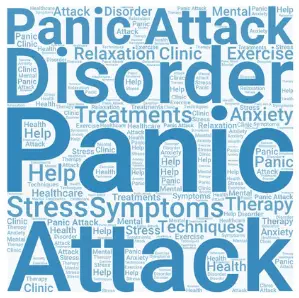What Are Some Causes Of Panic Attacks?
There is no one answer to the question of what causes panic attacks. It is often a combination of several factors that leads to an attack. Different people may have other triggers for their attacks. Yet, some common causes are worth considering.

One potential cause of panic attacks is stress. Stress can come from various sources, including work, school, family, and personal relationships. When a person is under a lot of stress, it can lead to anxiety and panic. Another potential cause of panic attacks is a genetic disposition. If someone in your family has a panic disorder or another mental health condition, then you may experience panic attacks yourself.
Panic attacks can be very frightening and debilitating experiences. Understanding the causes of panic attacks is important to manage them better. If you are prone to panic attacks, try to understand your triggers. This can help you avoid them or be better prepared when they occur. Your loved ones can support you better during these difficult times if you know the causes.
Approximately 5% of the population will experience a panic attack. Women are twice as likely as men to experience panic attacks.
The exact cause of panic attacks is not known. But there are several theories about what may contribute to their development.
One theory suggests that panic attacks are a result of learned behavior. This means that people who have experienced traumatic or stressful events in their lives may be more likely to develop panic disorder. Another theory suggests that panic attacks result from biological factors. One of these factors is an imbalance of neurotransmitters in the brain. People with panic disorder often respond well to medications that target specific neurotransmitters. This confirms the theory of an imbalance of neurotransmitters in the brain.
When panic attacks, the body goes into an extreme “fight or flight” response. The person experiences a rush of adrenaline, and their heart rate skyrockets. This cannot be very comforting. It may also cause many physical symptoms. Some of them are chest pain, shortness of breath, and dizziness. Many people who panic attack feel like they will die or lose control.
There are many potential causes of panic attacks, including genetics, anxiety, and stress. People who suffer from panic attacks often have a family history of anxiety. Stressful events such as job loss or the death of a loved one can also trigger panic attacks. You can treat panic attacks if you understand the causes.
Panic attacks are a type of anxiety disorder. Sudden and intense episodes of fear or anxiety characterize such panic attacks. These episodes can occur anytime, without warning, and can be frightening. Many people with panic disorder fear having another attack. So, they often avoid situations where they might feel unsafe. Stressful life events like losing a job or relationship can also trigger panic attacks. There is evidence that panic disorder runs in families.
In conclusion, panic attacks are a type of anxiety disorder. Sudden and intense episodes of fear or anxiety are the features of panic attacks. The cause of panic attacks is not understood. But there is a belief that it is a combination of genetic and environmental factors. It is important to seek professional help to treat the condition of panic attacks.

